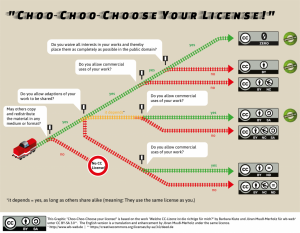Find out more about how to make the most of ORCID in Six Things to Do Now You’ve Got an ORCID iD.
Category Archives: EN
Paywall: The Business of Scholarship (Full Movie) CC BY 4.0
Paywall: The Business of Scholarship, produced by Jason Schmitt, provides focus on the need for open access to research and science, questions the rationale behind the $25.2 billion a year that flows into for-profit academic publishers, examines the 35-40% profit margin associated with the top academic publisher Elsevier and looks at how that profit margin is often greater than some of the most profitable tech companies like Apple, Facebook and Google. For more information please visit: Paywallthemovie.com
Paywall: The Business of Scholarship (Full Movie) CC BY 4.0 from Paywall The Movie on Vimeo.
Google Scholar, Web of Science, and Scopus: a systematic comparison of citations in 252 subject categories
Google Scholar found nearly all WoS (95%) and Scopus (92%) citations […] in all areas GS citation data is essentially a superset of WoS and Scopus, with substantial extra coverage. Now in Journal of Informetrics. FREE
Abstract
Despite citation counts from Google Scholar (GS), Web of Science (WoS), and Scopus being widely consulted by researchers and sometimes used in research evaluations, there is no recent or systematic evidence about the differences between them. In response, this paper investigates 2,448,055 citations to 2,299 English-language highly-cited documents from 252 GS subject categories published in 2006, comparing GS, the WoS Core Collection, and Scopus. GS consistently found the largest percentage of citations across all areas (93%-96%), far ahead of Scopus (35%-77%) and WoS (27%-73%). GS found nearly all the WoS (95%) and Scopus (92%) citations. Most citations found only by GS were from non-journal sources (48%-65%), including theses, books, conference papers, and unpublished materials. Many were non-English (19%-38%), and they tended to be much less cited than citing sources that were also in Scopus or WoS. Despite the many unique GS citing sources, Spearman correlations between citation counts in GS and WoS or Scopus are high (0.78-0.99). They are lower in the Humanities, and lower between GS and WoS than between GS and Scopus. The results suggest that in all areas GS citation data is essentially a superset of WoS and Scopus, with substantial extra coverage.
Paper DOI
License
No license
“Choo-Choo-Choose your license!” Infographic on Creative Commons licences
ORCID – What’s So Special About Signing In?
You can read about the advantages of signing in on ORCID
Designing for accessibility
Some dos and don’ts on designing for accessibility.
source: Home Office and Home Office Digital

This work is licensed under a Creative Commons Attribution 4.0 International License.
Looking for free pics?
All images on the following websites can be used for free without asking permission or providing credit.
Rainbow of open science practices
European Community publishing platform
The EC will fund an Open Research Publishing Platform provisionally entitled ‘Open Research Europe’. The main aim of the platform is to offer Horizon 2020 beneficiaries a free and fast publication possibility for peer reviewed articles as well as pre-prints resulting from Horizon 2020 funding.
According to an “Information Note” the platform will operate on a strictly voluntary basis.
The platform is part of the H2020 Work Plan 2018-2020: Over a duration of 4 years a maximum of 6.4 million € are foreseen for this action and the implementation of the platform will take place through a fully transparent public procurement process.
ORCID provides a persistent digital identifier that distinguishes you from every other researcher
ORCID (Open Researcher and Contributor ID) is a nonproprietary alphanumeric code to uniquely identify scientific and other academic authors and contributors. It provides a persistent identity for humans, similar to that created for content-related entities on digital networks by digital object identifiers (DOIs). WIAS’ Open Access Commission recommends you to register with ORCID.
ORCiD – how-to
- Registration takes 30 seconds
- Add your info and enhance your ORCID record with your professional information and link to your other identifiers (such as Scopus or ResearcherID or LinkedIn)
- Use your ORCID identifier on your Webpage, when you submit publications, apply for grants, and in any research workflow


